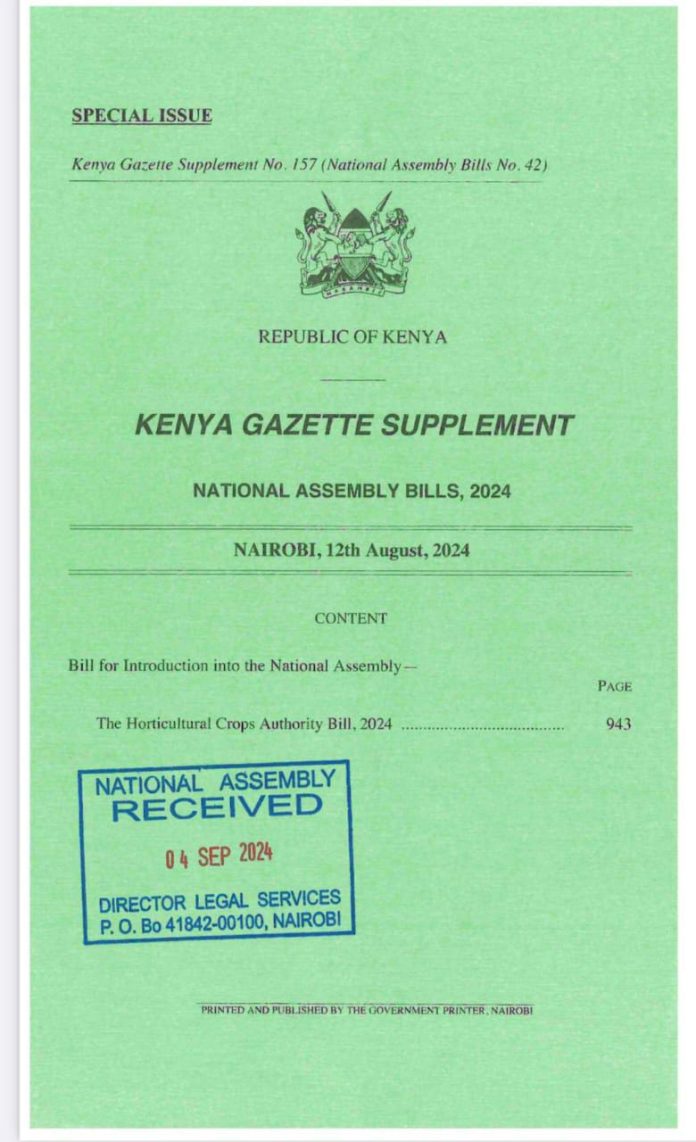The Horticultural Crops Authority Bill, 2024, is set to transform Kenya’s horticulture industry, introducing stringent regulations that will significantly impact farmers and dealers in the sector. Under the new law, individuals involved in growing, processing, and selling horticultural products like fruits, vegetables, and flowers will now be required to obtain licenses, particularly large-scale operators, exporters, and nursery handlers. This shift aims to promote sustainable horticulture practices, but it has also raised concerns of overregulation, especially for small-scale farmers.
Key provisions of the bill include mandatory registration and licensing with the Horticultural Crops Authority for all dealers, with licenses needing annual renewal. The authority will regulate and oversee various activities in the sector, including controlling the import and export of horticultural products. Violators face steep penalties, including fines of up to KES 1 million or up to three years’ imprisonment.
In addition to oversight, the authority will advise the Agriculture Cabinet Secretary on key sector issues, enforce soil testing, pesticide approval, and water usage guidelines to promote safe and sustainable farming practices. For example, large-scale horticultural farmers will be required to pay:
- Ksh 10,000 for a license to grow fruits and vegetables from NEMA.
- Ksh 2,500 for soil tests and analysis.
- Ksh 4,700 for water tests and analysis.
- Ksh 5,000 for certification.
- Ksh 60,000 for a Pest Control Board License.
- Ksh 15,000 for first aid training and equipment every two years.
While the bill aims to formalize and regulate the horticulture industry, small-scale farmers supplying local markets worry that these new requirements might burden their operations, even though the government assures that the focus is on large-scale producers. As the sector anticipates the changes, the balance between regulation and supporting smallholder farmers remains a contentious issue.

